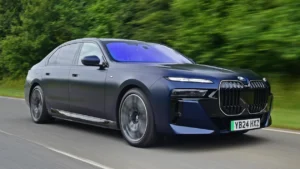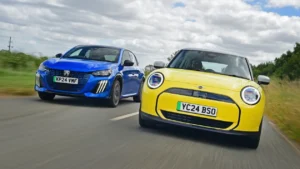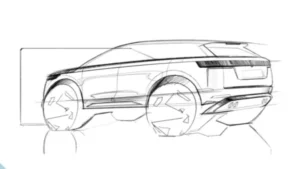Landmark moment as used EVs are now cheaper than equivalent petrol cars

After three years, a used electric car is typically 8.5 per cent less expensive than its petrol-powered counterpart
Finally, used electric cars are now cheaper than petrol and diesel cars. No this isn’t clickbait; data from Cap HPI shows that heavy depreciation has meant that buying a used EV is often cheaper at the point of sale than the equivalent petrol or diesel car. That’s before you even get into the reduced running costs.
After three years, Cap HPI says the average electric car is around 8.5 per cent cheaper than its petrol or diesel counterpart, rising to 14 per cent when it’s four years old. With EV technology developing at an accelerated pace and consumer confidence in older models on the weaker side, the values of most EVs typically halve over just two years, meaning there are plenty of bargains to be had on the used market.

Of course, prices can vary significantly from model to model. Looking at Cap HPI’s own data we can see, for example, that the average price of a three-year-old, 36,000-mile Vauxhall Corsa Ultimate is around £9,925 for a petrol model and £8,750 for the Electric – despite the latter costing roughly £6,000 more when new.
There are some outliers, however, with a used Hyundai Kona Electric of the same age and mileage as the aforementioned Corsa is virtually the same price as the equivalent mild-hybrid version. At the other end of the scale, the BMW i7 actually holds its value much better than its plug-in hybrid 7 Series sibling, although both models suffer very high levels of depreciation.
Cap HPI’s used EV specialist, Chris Plumb, explained how “The growing availability of second-hand electric models is driving demand as motorists want to reduce their environmental footprint and make significant motoring cost savings due to high diesel and petrol prices”.
In its pre-election manifesto, the Labour Party pledged to boost consumer uptake of used electric cars by mandating what it described as a “standardisation of the information supplied on the condition of batteries”.
It’s expected that such a scheme would come in the form of EV battery passports – something that’s already being tested by Volvo. This technology would enable buyers to access data on their phone via a QR code such as the car’s environmental impact and the state of the battery.
Unfortunately, high insurance costs mean that many won’t be swayed by the eye-catching used prices of EVs. Research from the price comparison site Quotezone shows that EVs typically command insurance premiums that are 54 per cent more expensive than the petrol or diesel equivalent – the result of how expensive and difficult replacement parts can be to source, not to mention a lack of trained technicians able to work on electric cars.
Of course, other issues such as a lack of cheap public charging for those without a driveway will need to be addressed before we see mass adoption of electric vehicles. Labour says it will provide local authorities with more comprehensive guidance on where and how to install chargers, with the expected reimplementation of the 2030 ban on the sale of new petrol and diesel cars expected to further supplement the used EV market as more people make the switch.





